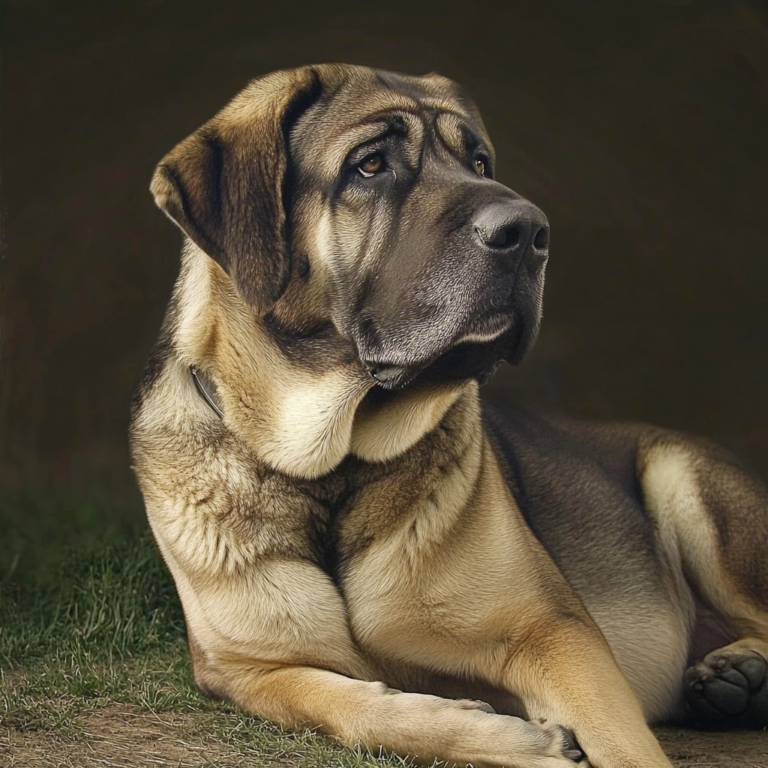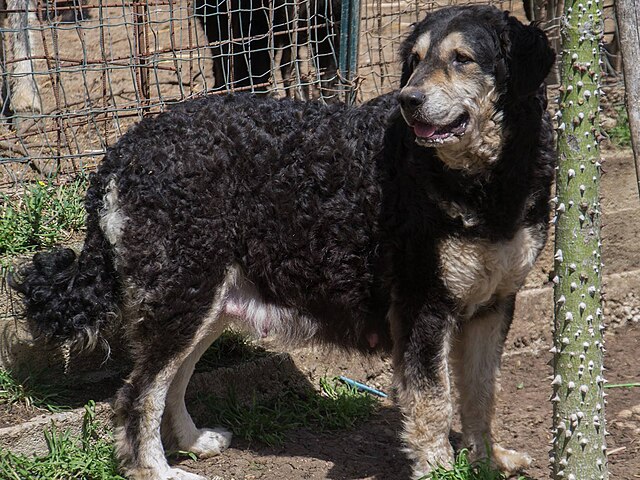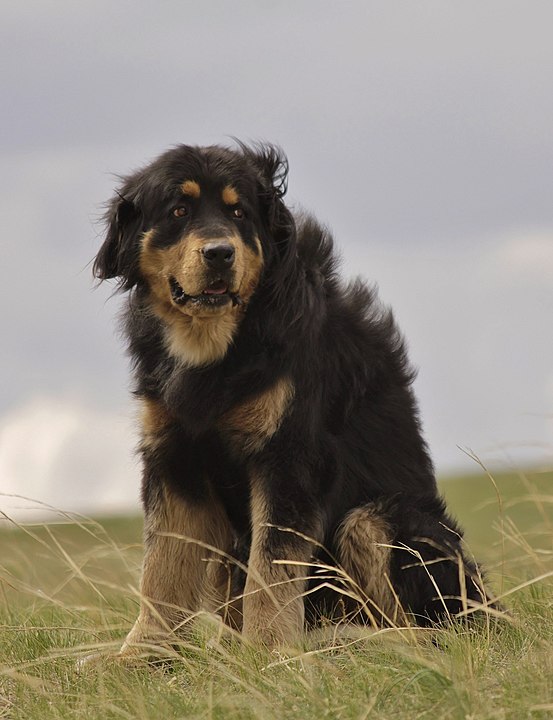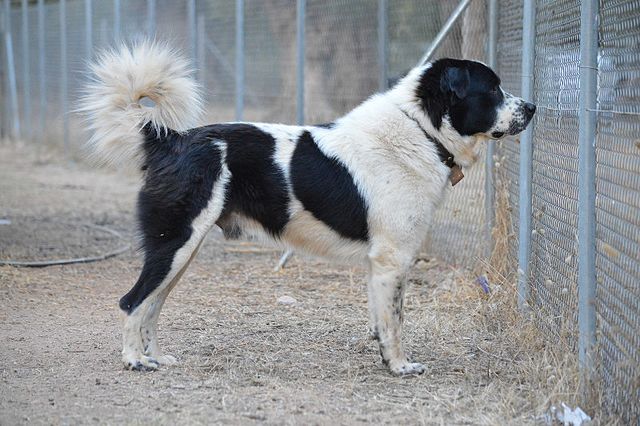The Maremma Sheepdog is an Italian Livestock Guardian Dog, bred for watching over sheep both in mountainous and flat terrain. He would stay with the flock all day and night, keeping watch of predators both two and four legged. This is a brave dog willing to die for his charges if need be. Maremmas are a rare breed but are recognized by the UKC in the United States and the demand for them is actually quite high from ranchers around the world. A prospective owner may need to look abroad for a puppy and be prepared to wait.
Maremmas are affectionate toward “their people”, often wanting to be as close as possible so they can keep watch (just like they did in Italy). Their affection does not look the same as the typical dog as they are not prone to kisses or jumping, but they will often lean on their person and/or give “hugs”. This said, they are not recommended as pets. This is because they were never bred to be companion animals – rather they were bred to be working dogs. They must have a job to do and most of them need a 24/7-type guarding job as was their original purpose. Without a purpose, they can become bored and/or develop serious behavior problems.
Maremma Sheepdogs are massive animals which can weigh over 100 pounds (for males). Add this to the fact that they are supremely suspicious of strangers and one can see why they could be a liability in the wrong hands! Most cannot handle other people coming into the home, at very least without the presence of their owner, which makes him very difficult to own as a pet for most people. It is not that the breed is randomly aggressive – rather that they are more likely to see threats where there are actually none. While a Maremma as a pet can be done, it would require the right puppy (with a more sociable temperament than most) from the right breeder (who is very knowledgeable about the lines) and a literal TON of continued socialization (more so than the average puppy/dog would need) to go into the right hands (an experienced owner with time to spare, who can give the puppy plenty of work to do).
The Maremma is not a guard dog in the “traditional” sense as he was never bred to be a personal protection dog. To compare, a breed such as a Rottweiler is hardwired to listen and work with the owner through protection training, while a Maremma is bred to think independently and make his own decisions about what may constitute a threat. He needs no special training to do this, but he will ignore his owner and act (or not act) depending upon his own assessment of the situation. Personal protection dogs are very different from livestock guarding dogs and do not fulfill that same purpose.
Maremma Sheepdogs get along well with young children, including infants, as long as the children are in their own family. However, they can misinterpret the interactions of children’s friends which is where the danger lays. An innocent childhood game could be seen as one child attacking “their child”, and they could potentially go after the childhood friend in a misguided attempt to protect. Furthermore, they may also have issues with older children, particularly those who act “weird” (as some teenagers are apt to do). They have a very short fuse for any form of teasing and will not tolerate it.
Maremmas get along with other dogs and animals in general, as this is essentially what they were bred to do. Most love being around livestock but are also usually fine with small animals as well. Just make sure to supervise all initial interactions, especially when it comes to young clumsy puppies and/or large unruly animals such as cattle. Accidents can always occur so use common sense! As Maremmas were bred to “be the boss” of whatever animals they are assigned to watch, they tend to be dominant and assertive. If there are two dominant dogs in a household (particularly males) that refuse to yield to each other, there may be problems.
The Maremma Sheepdog doesn’t need a lot of exercise in the form of walking although they do best living in places with land, particularly growing puppies. They need space to roam in a securely fenced area and many also prefer spaces to dig (they can create enviable craters in which to keep watch over their charges). Young puppies also need to be given appropriate things to chew on so they won’t take their teething behaviors out on something expensive (like the side of the house!). If your Maremma Sheepodg loves to chew, the long-lasting Benebone is built to handle even the toughest jaws – https://amzn.to/410F5TG
Maremma Sheepdogs can be barkers when living in a place with a lot of stimuli. Barking played an important role in their job, as they would warn any intruding enemies that they were getting too close to their territory. This is another reason why they do better in a country setting.
Maremmas definitely need to be given obedience training, both because of their size and their naturally assertive temperaments. Clean dogs by nature, they are usually quick to housebreak although obedience training may take a bit longer because of their highly independent personalities. This breed is not known for high scores in the obedience ring because they prefer to call the shots themselves. This said, they are highly intelligent and they still need to learn basic house manners/introductory obedience commands (at very least) so time must be put into this important work. They learn best when taught in several short sessions spread throughout the day. Make sure to start teaching while they are still young and more easily managed!
The Maremma does tend to shed quite heavily twice a year. The coarse, white double coat doesn’t need a lot of grooming. In fact, some working dogs coats are never groomed as the water-repellent, weather-proof coat tends to do a decent job protecting the dog from outdoor conditions. This said, if the dog is to be housed inside, one will probably want to give grooming more attention. A clean, dry dog smells better (to the owner) and feels better (to the dog) as the skin and coat will be kept fresh. Furthermore, grooming promotes coat growth and will give an overall more majestic picture. Finally, brushing helps to pull out dead hair which will lessen the severity of shedding when it happens.
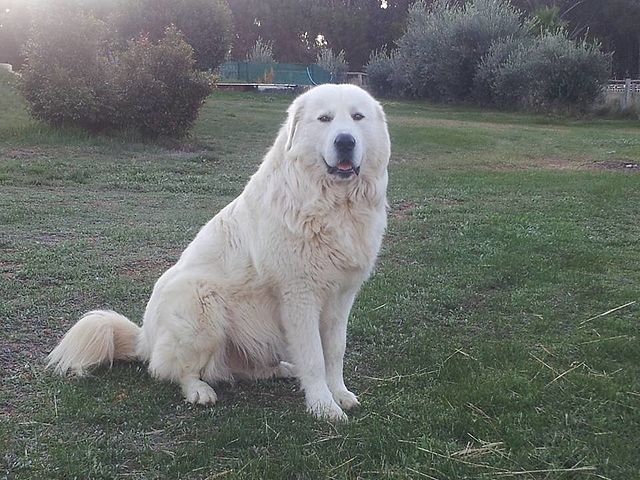
Affiliate Disclaimer
As an Amazon Associate, I earn from qualifying purchases. This means that if you click on an affiliate link on this site and make a purchase, I may earn a small commission at no additional cost to you. Rest assured that I only link to products I have used, or use on a regular basis, and trust enough to recommend them to you!
